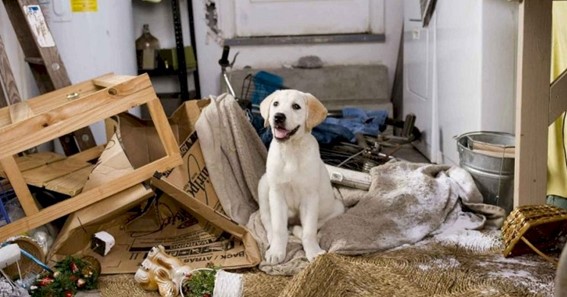As a dog owner, you will someday come home to discover unexpected damage to your shoes, couches, carpets, or other items. While dogs extensively use their senses of sight and smell when exploring their surroundings, they also use their mouths to explore their environment and learn new things. Thankfully, you can guide your dog’s chewing in the right direction so that they do not jeopardize their safety or damage objects that are dear to you.
However, the best treatment is to avoid chewing until your furry BFF figures out what they should and should not chew. Avoid a costly visit to the doctor by preparing your furry companion through a k9 training class so they can stay healthy and aware of their environment;
click here – What Do You Need to Know Before Building a Trading Platform?
- Get To Know Your Furry Friend
Puppies, like newborns or toddlers, investigate their surroundings by putting objects in their mouths. At the same time, they teethe for about six months, just like newborns, which can be painful. Chewing objects help them with teething and soothes their aching gums.
On the contrary, adult dogs sometimes indulge in harmful chewing for various reasons, such as stress or overcoming boredom. To stop this habit, it is best first to find out why your dog is chewing – and while at it, understand that they are not chewing to annoy you. Among the possible causes of harmful chewing are:
- They are disinterested.
- They struggle with separation anxiety.
- Their behavior is motivated by fear, and they use chewing as a coping mechanism.
- Chewing feels good to them.
- As puppies, they were not taught what is appropriate to chew and what is not.
- They have no experience with chewing toys that are both suitable and safe.
If you suspect your puppy’s chewing behavior is due to severe anxiety, you should see a behavior specialist to treat anxiety-related habits and separation anxiety problems.
click here – How Much Do Acting Classes Cost?
Teach Your Dogs What To Chew
To teach your dog what to chew on, you can do the following:
- Take Responsibility For Your Possessions
Make the items that attract your dogs inaccessible if you do not want them to chew on them. Clothes, shoes, magazines, trash, sunglasses, and game controllers should be out of reach of your furry friend. The easiest way is to keep garbage in a closet or cordon off places with appealing items.
- Give Them Toys Easily Distinguishable From Everyday Objects
You can mislead your dogs if you give them shoes or socks as toys and then expect them to tell the difference between your shoe and their shoe. Keep an eye on your puppy until they routinely start chewing on appropriate objects.
- Supervise Your Pup
Put a collar on your dog when they’re in the house to prevent him from making mistakes or restrict his access to certain areas. Choose a puppy-safe area and provide clean water and safe toys. If you’re cage training your puppy, you can confine him to his cage for short periods. Remember that you shouldn’t use kennels for punishment. Instead, they should be places where your puppy feels comfortable. Keep in mind that baby gates and exercise pens are equally helpful.
Stimulate Your Puppy Mentally And Physically
When a dog struggles with boredom, it will find something to entertain it. Exhausted dogs, on the other hand, are often quiet. Therefore, make sure they get enough physical and mental stimulation. The amount of activity they need should depend on their health, age, condition, and species. Daily walks and other outdoor activities are essential for their health, but it’s more fulfilling to let them smell than to try to do power walks. A reliable doggie daycare is a beautiful solution for energetic pups who love the company of other dogs.
Build Toys Into Your Regular Routine
Give meals in puzzles or Kong toys instead of bowls. For skilled chewers, fill the holes of the puzzle toy with canned peanut butter or cheese and freeze it overnight before offering it to them. Be sure to rotate the toys – new objects are much more entertaining for your dog than gnawing on the same old toys. Hide some toys and release them when you need to entertain your dog.
Have Reasonable Expectations
Your furry friend will surely devour something valuable at some point; it’s a common habit when settling in a new place. It will take your dog some time to figure out where and what chew toys are acceptable. To prepare them, ensure the unacceptable items are out of reach.
You may be concerned about what your dog chews sometimes. If you teach your pups to trade unacceptable things for treats, they will learn to give up even the most pleasant items. The cornerstone of an enjoyable time with your pet is building and maintaining a positive, trusting relationship with your dog.

